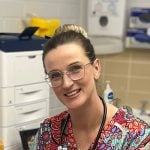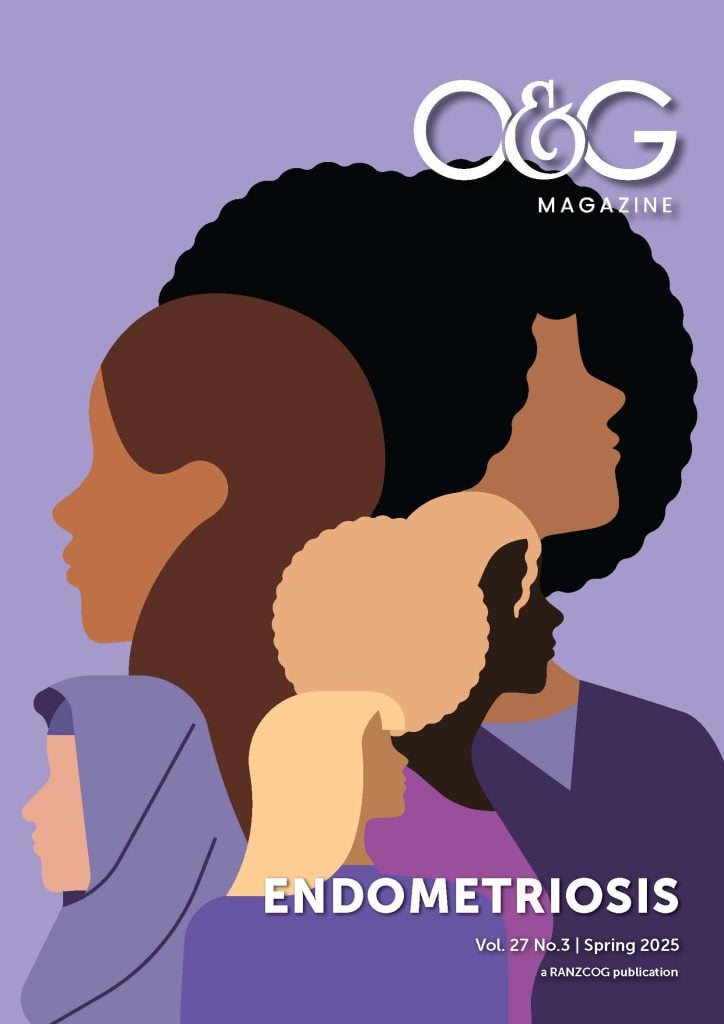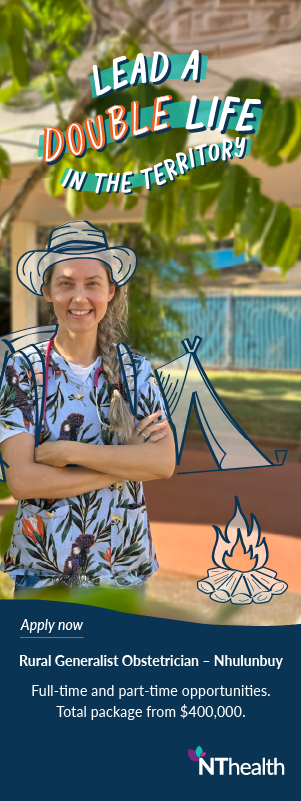This feature sees Dr Magdalena Halt in conversation with Dr Anna Kearney, a GP Advanced Obstetrician at the Yorke Peninsula Pelvic Pain Clinic.
Join the conversation on X #CelebratingLeadership @RANZCOG
In 2022, I had the pleasure of meeting Dr Anna Kearney at a pelvic pain network meeting. At the time, she had recently started working as an Advanced GP Obstetrician at Kadina Medical Associates and Wallaroo Hospital and Health Service and was interested in expanding care for women experiencing pelvic pain. For context, Wallaroo is located on the Yorke Peninsula, approximately 160 km northwest of Adelaide and is classified as a Modified Monash Model 5 area.
Introducing Dr Anna Kearney
Anna was born in Port Lincoln but spent part of her childhood in Oodnadatta, in outback South Australia — which if you consult your map, is about as remote as you can get (around 1,000 km from Adelaide). She later completed her schooling and medical degree in Gawler and Adelaide. After obtaining her GP qualifications in 2020, Anna took a medical gap year working as a locum in the Northern Territory, a year which she remembers fondly. Hearing about her past, I was struck by the variety, her travels to remote locations and her adaptability. All excellent traits for a busy, sub-specialised country GP.
In 2023, thanks to Anna’s hard work and vision for women’s health, Kadina Medical Associates was recognised as one of the first rural endometriosis and pelvic pain clinics in Australia, and the very first in South Australia. The clinic is widely praised by patients and is a welcome respite from the long trips to Adelaide. Anna hopes to continue her current work and expand the clinic’s scope to encompass pelvic floor disorders, such as incontinence, and menopause care.
After learning about her work and the development of the rural pelvic pain clinic,I asked Anna about her approach to women’s healthcare, and how she’s navigating the unique challenges and opportunities of rural practice.
Congratulations on being the first Endometriosis Clinic in South Australia. Can you describe your pathway for caring for women with endometriosis and pelvic pain?
Our clinic encourages a multidisciplinary team approach, with pelvic physiotherapy and dietetics on site. All patients have a 45-60 minute consultation with a GP who has a special interest in pelvic pain, and they also see our pelvic health physiotherapist. Around half of our patients are also seen by the dietitian. Follow-up appointments with each clinician are usually undertaken every three months, depending on need.
We also run community women’s education nights with guest speakers covering topics such as pain psychology, gynaecology and exercise physiology — each session ends with relaxation yoga. In addition, we participate in community events and have developed an outreach clinic at Point Pearce Aboriginal Health Service. Over the past year, this has substantially grown into a full-day event involving multiple health providers. It brings care closer to home for the community in a culturally safe space, helping to break down some of the barriers to access.
What is the catchment area for your clinic?
Our patients travel from the bottom of the Yorke Peninsula, across the Spencer Gulf in Whyalla, Eyre Peninsula, north of Orroroo and as far south as the Adelaide Hills.
The clinic was established in 2023 with support from a federal government grant. From the outset, our focus was on building a sustainable, long-term service led by local clinicians.
What kinds of presentations do you commonly see?
Pelvic pain presentations may be related to period pain, dyspareunia, cyclical bowel or urinary symptoms and more. We are fortunate to have the time to take a detailed history, which allows us to diagnose not only endometriosis and PCOS, but also pelvic organ prolapse, inflammatory bowel disease and even bowel and ovarian cancer.
What are your numbers for attendance? How has this changed over time?
We currently have 284 patients on our books, 60 of whom have “graduated” and this number continues to increase. Our aim is to equip and educate women with the tools to self-manage period pain and persistent pelvic pain.
Did you choose women’s health, or did women’s health choose you?
Women’s health definitely chose me — I’m the third of four sisters! The variety of rural generalism had always appealed to me. As a medical student, a senior obstetric registrar once told me the best I could offer in rural areas was helping people “have a choice” in their pregnancy care, and whether they wanted to deliver locally.
I completed my Advanced Diploma of Obstetrics at Flinders Medical Centre before moving to Port Lincoln to complete my GP training. I then took a gap year caravanning with my husband and two young boys. We never found anywhere as wonderful as Wallaroo and returned in 2022 for the long term.
What do you love about your job and what could you live without?
I love the variety of rural generalism. Last week I delivered babies, provided palliative care and saw patients with a wide range of presentations encompassing the lifespan in-between.
What I could live without is when patients return with the same issue, having done none of the recommendations I made during their last appointment. Over time, I have learnt to reflect on this lack of engagement with them as recovery or improvement is so dependent on this commitment, particularly in chronic conditions.

How do you decompress?
Outdoors and exercise! Camping, swimming, running or netball. Anything outside.
What is your vision for the future of healthcare for women with endometriosis and pelvic pain?
Funding services like ours — where patients can access holistic care, close to home, for free — is making a huge difference in people’s lives. It would be amazing to see more of these clinics established in primary care, with the funding and workforce to support them.
I hope we reach a point where I no longer hear stories of dismissal, gaslighting and medical trauma in women’s health. I would love for more resources to be poured into primary care to support research and training in women’s health, where the initial consult is had, and where the greatest effect can be made.
What advice would you give other practitioners interested in women’s health focused GP practice in a rural setting?
Take time off to follow your interests and bring more knowledge back to better your community.
“Don’t be scared to try and create something for your community, for they will support you!”
Can you recommend a book that you’ve found helpful or simply really enjoyed?
I read purely for pleasure! I return to read The Miniaturist by Jessie Burton, or People of the Book by Geraldine Brooks multiple times to switch off before bed.
Thank you Anna, and we wish you and your clinic a bright future ahead!










Leave a Reply